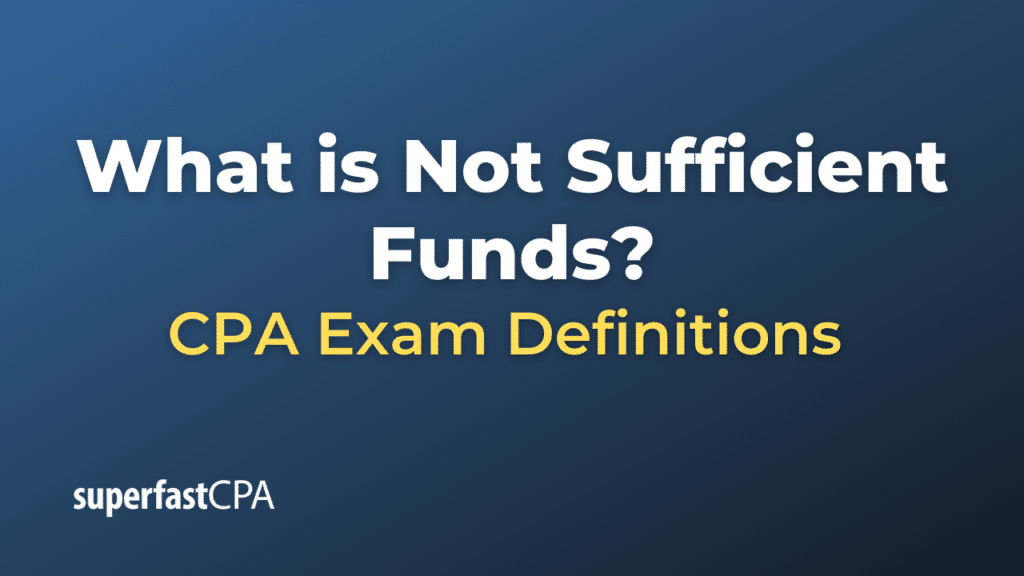Not Sufficient Funds
Not Sufficient Funds (NSF), also known as “insufficient funds,” refers to the status of a checking account that does not have enough money to cover transactions. NSF is a term used in banking to indicate that a particular check cannot be covered because the account holder has non-sufficient funds in their account.
The bank can decide to either pay the amount or deny the transaction, depending on the type of account, previous overdraft history, the amount of the transaction, and agreement with the account holder. If the transaction is denied, then the check will “bounce,” or be returned to the individual who deposited it.
In such cases, both parties (the account holder and the recipient of the check) may incur penalties or additional fees. The account holder is typically charged an NSF fee by their bank. The recipient of the check may also be charged a returned check fee by their bank in addition to not receiving the payment.
To avoid these situations, it is advisable to monitor the account balance regularly and manage expenses wisely.
Example of Not Sufficient Funds
Here’s an example of a situation involving Not Sufficient Funds (NSF):
Let’s say Bob writes a check to Alice for $200. He believes he has $250 in his checking account. However, he forgot about an automatic payment of $100 that was scheduled to come out of his account. As a result, when Alice goes to deposit the check, Bob’s account only has $150, not enough to cover the $200 check he wrote to Alice.
When Alice’s bank attempts to draw the $200 from Bob’s account, Bob’s bank will decline the transaction because of insufficient funds. As a result, Alice does not receive the 0, and the check is returned to her as a “bounced” check.
In this scenario, both Alice and Bob might incur penalties:
- Bob will likely be charged an NSF fee by his bank for the bounced check. This fee can typically range anywhere from $20 to $35.
- Alice, on her end, might also be charged a returned deposit fee by her bank for depositing a check that bounced.
In the future, to avoid this scenario, Bob should closely monitor his account balance and keep track of all scheduled payments to ensure he has enough funds in his account to cover any checks he writes. If he doesn’t have enough funds, he could choose to transfer money into the account, or delay writing the check until he does have sufficient funds.













